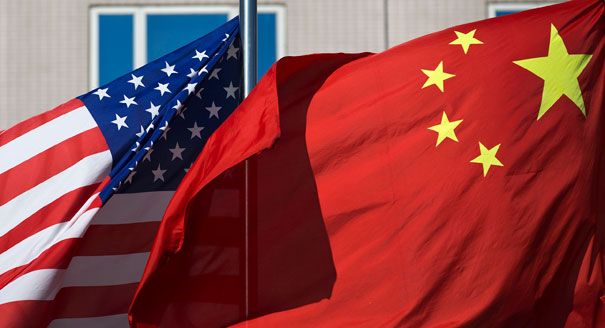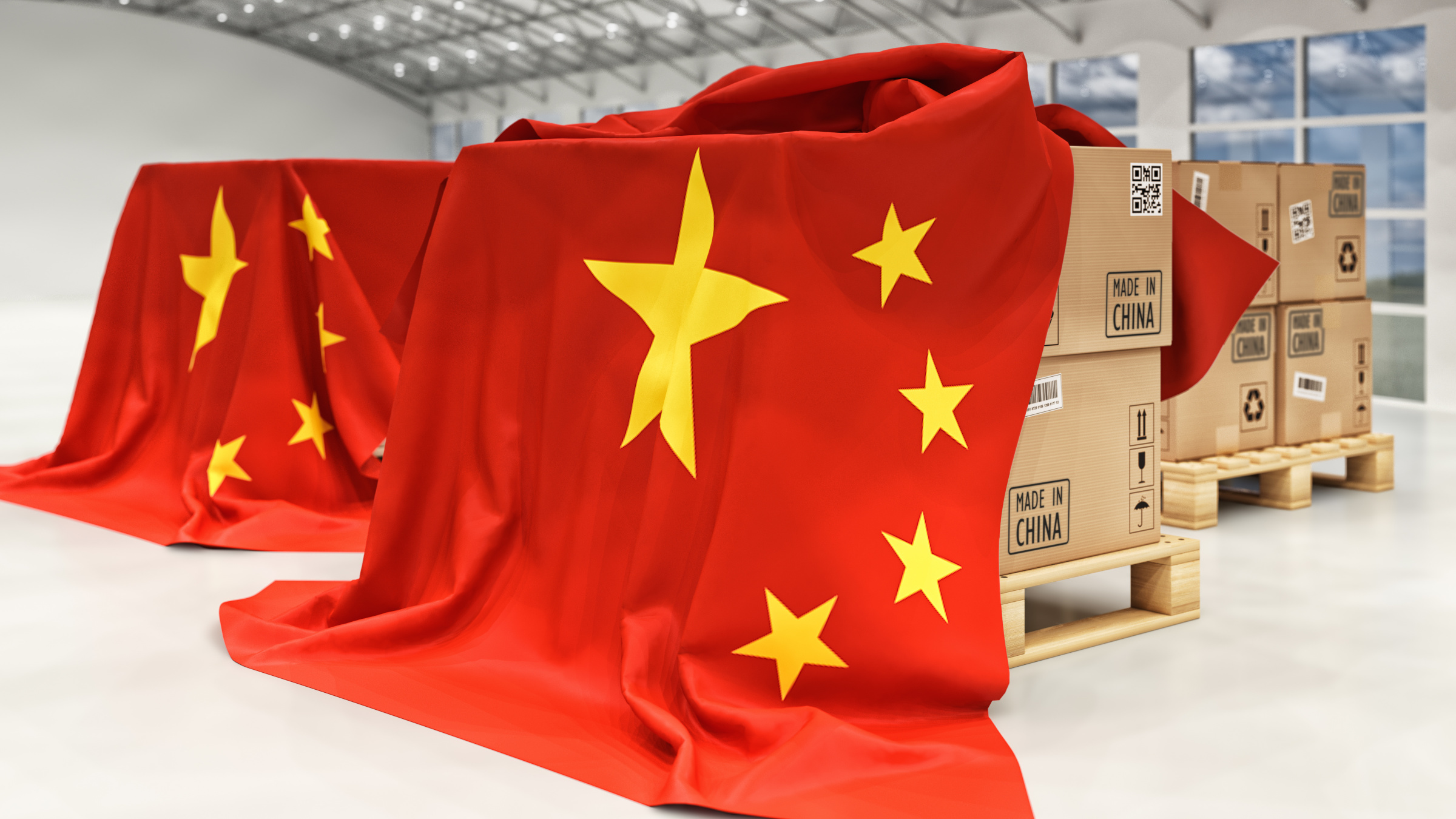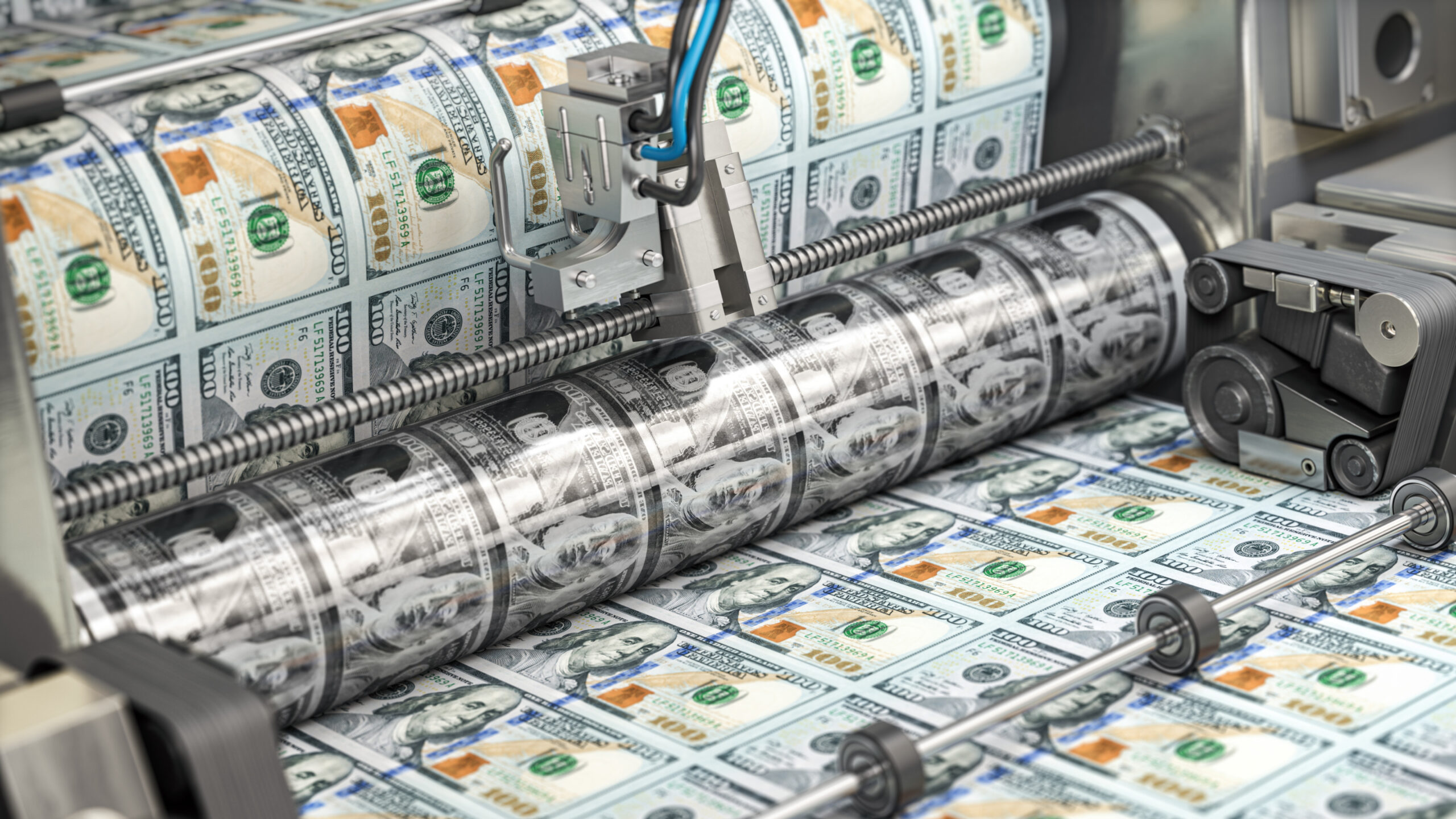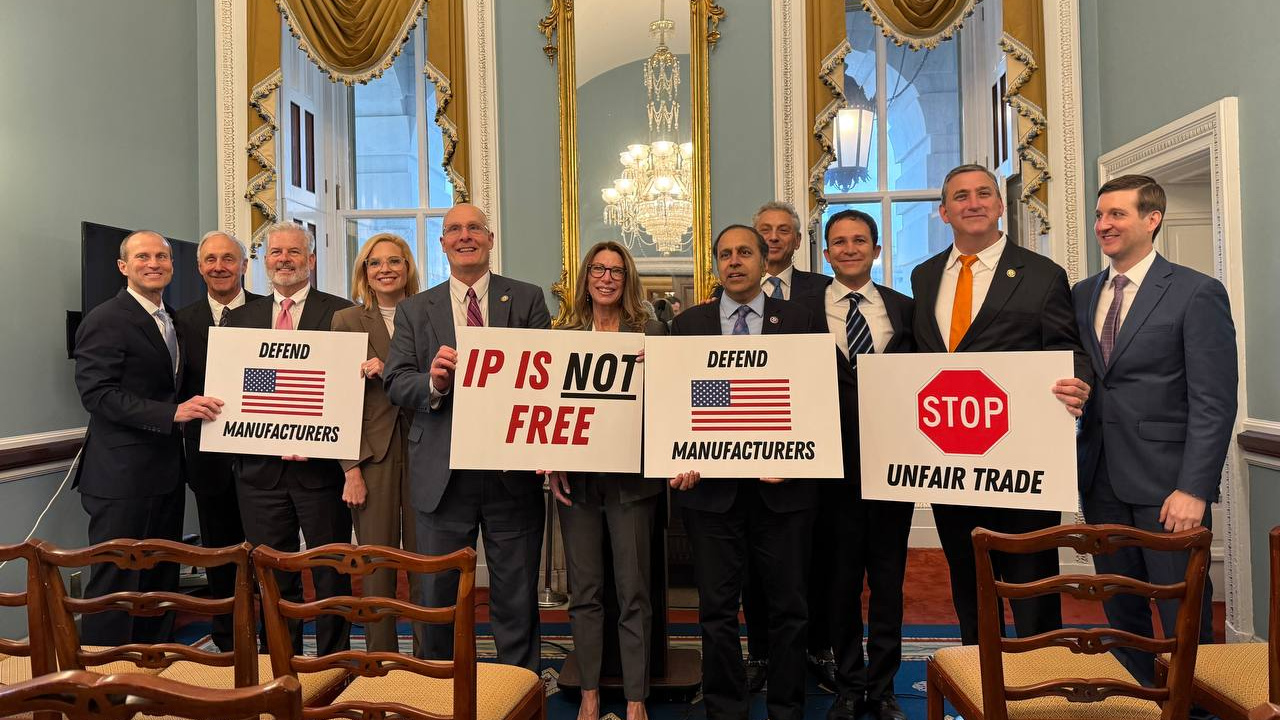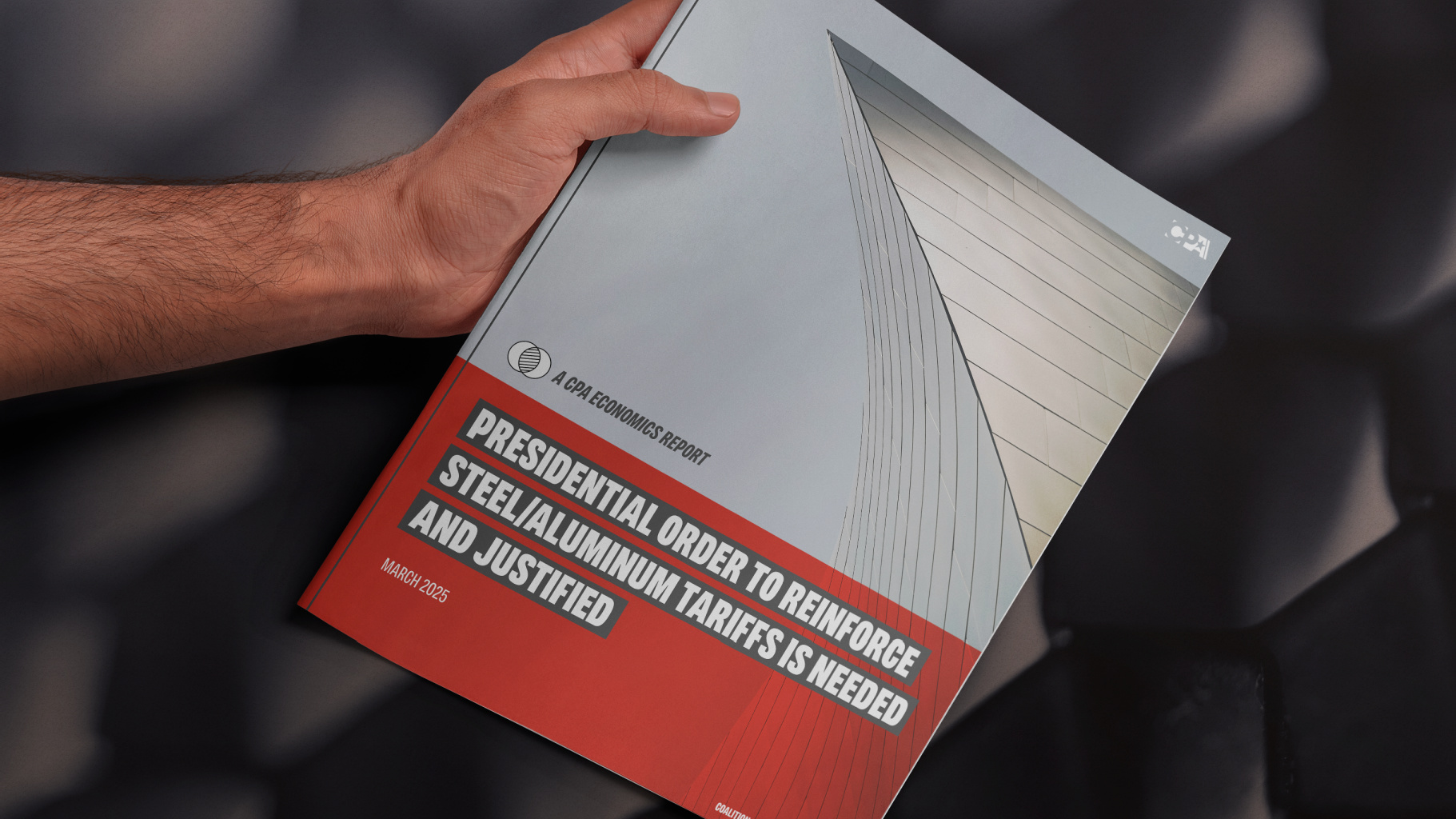In the wake of President Donald J. Trump’s decision to impose modest tariffs on Chinese steel imports, a deluge of ostensibly “conservative,” Reagan-era think tanks began zealously parroting an archaic and repeatedly disproven boogeyman of the Eastern intellectual establishment: that tariffs are inherently evil and caused the Great Depression.
[John Griffing | May 7, 2018 | WND]
Furthermore, the same think tanks, joined by a veritable plethora of academics and journalists, suggest that any tariffs or trade restrictions introduced by Trump will prompt China’s overhyped “nuclear option,” or the mass dumping of U.S. dollars. Called the “doomsday scenario,” those who subscribe to this theory contend any such dollar dump will precipitate a “domino effect,” ending the greenback’s pre-eminent status as world reserve currency.
China threatens to trigger its nuclear option on a regular basis, and it may surprise “doomsday” economists to learn that Beijing has been dumping dollars at a snail’s pace since the 2008 housing crash, when it began making fresh dollar-dump threats while paradoxically recapitalizing U.S. banks. If China’s “nuclear option” were really so devastating, why don’t they just pull the trigger and dump all of their dollars at once, which is the only thing that would actually fatally wound the United States?
In short, China cannot afford to kill “the Golden Goose,” and moreover, China would have nowhere to sell its trillions of U.S. dollars and no buyers, since the global market is already saturated with “petro-dollars.” In fact, world investment portfolios are gradually reducing demand for dollars due to the surplus of greenbacks in circulation following multiple rounds of “quantitative easing” by the major central banks. The biggest buyer of U.S. Treasury bonds at present is the Federal Reserve, which poses a different problem for the market, but certainly not the one suggested by the Communist Chinese.
Chinese threats are about as threatening as the “Boxer Rebellion” to British rapid-fire Maxim guns at the turn of the century. So why does this woefully inaccurate bit of historiography survive and rear its head whenever any American suggests shielding strategically vital domestic producers from unfair dumping by China? Answer: It’s a religion.
Most of those vocally opposed to even minor efforts to protect domestic steel producers are fanatical devotees in the church of “free trade” – a self-destructive ideology Karl Marx once touted as a strategic weapon against capitalist countries. Otherwise sane people will defend free trade dogma with blind zeal, even when the data clearly contradict the black-and-white claims of its adherents.
Free trade is the only blind spot for conservatives comparable to the faith-based liberal belief in chaotic global warming, even though we’ve had a 16-year-cooling trend, according to NASA; and, despite the fact that Michael “hockey stick” Mann admitted he lied. Like their liberal counterparts – who fanatically embrace global warming as unimpeachable fact – free trade believers are full of “hot air.”
Whatever their past contributions, R Street, AEI and Heritage Foundation are guilty of intellectually lazy and totally unsubstantiated fear-mongering where it concerns trade policy and tariffs.
It is essential that any analysis (economic or scientific) be based on something other than mere declarative statements or opinions. Anything less is “begging the question.”
Let’s review some consistent claims of those baselessly criticizing Trump’s tariffs.
Claim: The Bush 2002 steel tariffs “failed.”
None of the reports or backgrounders making this assertion include any data from the International Trade Commission (ITC) or the U.S. Department of Commerce from the period in question. If they did, the headlines would look very different indeed.
It turns out, tariffs almost always work. And they did for Bush in 2002. Imports declined, and U.S. steel-producing companies reported an overall increase in sales and profits the year following the tariffs. Tariffs also worked for Harley-Davidson in the ’80s, and more recently, for washing-machine manufacturers. Clearly, free trade dogma isn’t based on reality.
Claim: All global competition is mutually exclusive and morally equivalent; America shouldn’t do anything to protect its industries, even when they are vital to its military strength and national security.
Bridges made with cheap Chinese steel are at higher risk of collapse, exposing American drivers to real danger. Our military also depends on sizable inputs of domestic steel to manufacture aircraft, tanks, ships and all manner of military equipment.
Some industries must be protected for purposes of national security, a concept 30 years of Democrats and “neocons” in the White House have almost completely obliterated.
The U.S. Senate Committee on Foreign Investments (CFIUS) approves foreign control of critical national defense infrastructure at the drop of a hat in today’s climate, e.g., the manufacture of our smart bombs to China and the enriched plutonium needed for the development and maintenance of our nuclear weapons stockpiles to Russia.
America cannot be the “arsenal of democracy” when Communist China is making its bombs.
Nations exist for a reason: to protect and provide for their people, an existential imperative that supersedes “markets.”
Claim: China’s retaliation will destroy the American economy.
In actual fact, China cannot afford to levy tariffs on much of anything we send them, unless they want roughly 60 percent of their GDP (exports) to disappear. That’s because, fundamentally, China’s economic interdependence with the U.S. is characterized by “turnaround exports.”
Sometimes categorized as “intra-industry” or “intra-firm,” these types of exports account for a combined 90 percent of U.S. trade. Some 71.4 percent of Chinese exports to America are “re-exports,” or goods that are shipped to China for assembly and are then shipped back to America to satisfy consumer demand.
Similarly, multinational firms account for an increasing share of Chinese exports, at 42 percent in 1998. That means China cannot launch a “trade war,” as anti-Trump “Chicken Littles” suggest, without crapping in its own nest. (Coincidentally, Chinese folklore teaches that being defecated on by a bird is “good luck.”)
Claim: Tariffs caused the Great Depression.
“As for the whole idea that the steel tariffs will lead to a new depression – there’s been lots of references to the infamous Smoot-Hawley Tariff Act of 1930. … It’s a nice scare tactic, but Smoot-Hawley included tariff changes that impacted 20,000 categories of goods, and it was enacted by Congress at a time when the economy … had already crashed. It’s not a reasonable comparison to the current situation today,” said Scott Paul, president of the Alliance for American Manufacturing, in March.
Moreover, history shows that the Federal Reserve caused the Great Depression, and FDR’s policies prolonged and deepened it – not tariffs.
The world economy could not exist without the United States of America. Collectively, the United States buys 20 percent of all the world’s imports. Sound small? Compare this to the EU, standing at 16 percent of all imports, or Japan at 5 percent of all imports. Emerging economies like China are net exporters, with some 60 percent of their GDP from exports. When trade is broken down by development category, the United States takes nearly half of developing nations’ exports.
Indeed, a study by the International Monetary Fund (IMF) demonstrates that the world economy is still very much intertwined with U.S. consumer trends. G-7 recessions are still 60 percent correlated with U.S. recessions, and the stock prices of industrial nations are still 70 percent correlated with the S&P 500.
Because of these interrelationships, it can be deduced that any Chinese brinkmanship would be self-destructive and is, therefore, unlikely.
In the final analysis, the world is still hopelessly dependent on America. The United States has the right to protect its producers, and doing so is historically beneficial.



